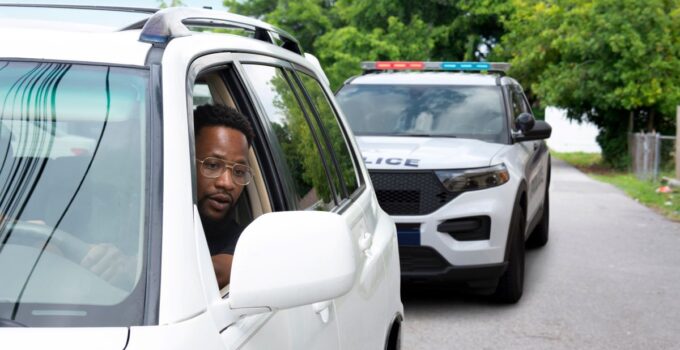Getting pulled over by the police can be a stressful experience, and knowing how to handle the situation can make all the difference. Your rights are essential, but so is understanding the reality of the situation on the ground. Here’s how to stay safe and protect yourself legally when you’re stopped by the police.
1. Pull Over Safely and Quickly
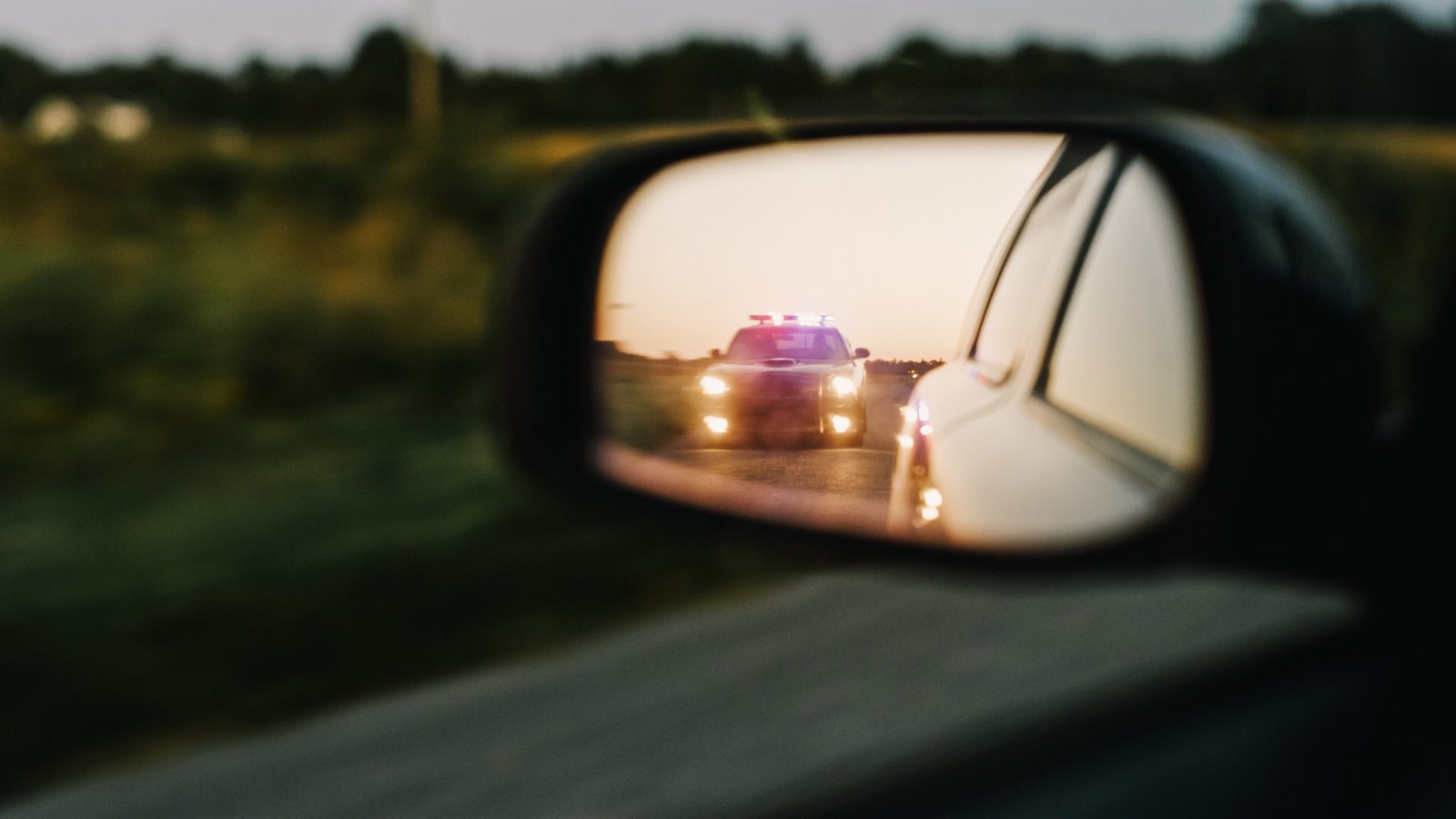
Image Credit: Shutterstock / Gorodenkoff
When you see flashing lights, pull over as soon as it’s safe to do so. Avoid stopping in a dangerous area, like a curve or intersection. According to the National Highway Traffic Safety Administration (NHTSA), stopping promptly but safely reduces the risk of further escalating the situation.
2. Keep Your Hands on the Wheel
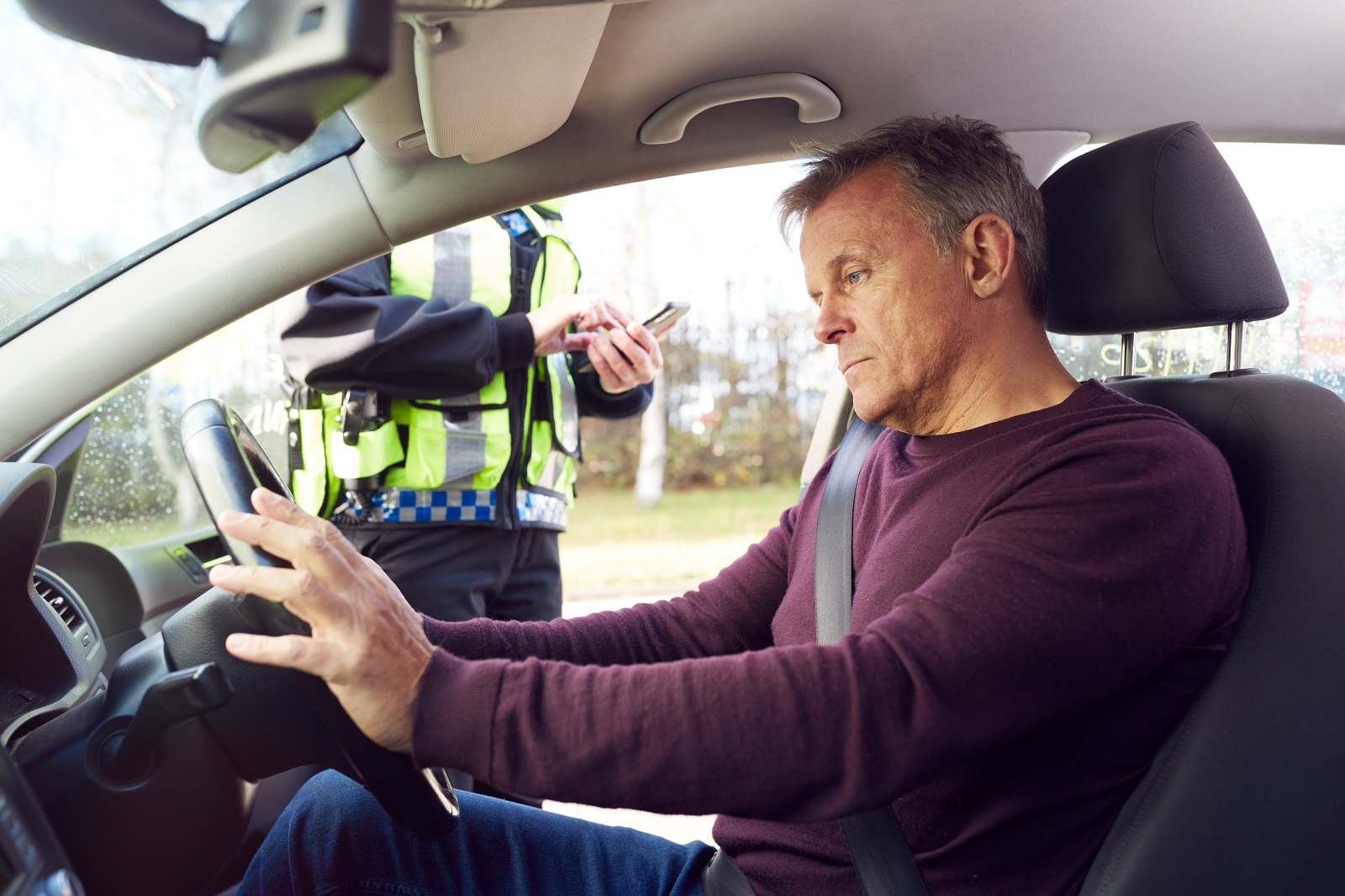
Image Credit: Shutterstock / Monkey Business Images/
Once stopped, keep your hands visible on the steering wheel. Law enforcement officials are trained to look for signs of threat, and sudden movements can raise concerns. The National Law Enforcement Memorial Fund reports that traffic stops are some of the most dangerous situations for officers, making visible hands a critical safety measure.
3. Know Your Right to Remain Silent
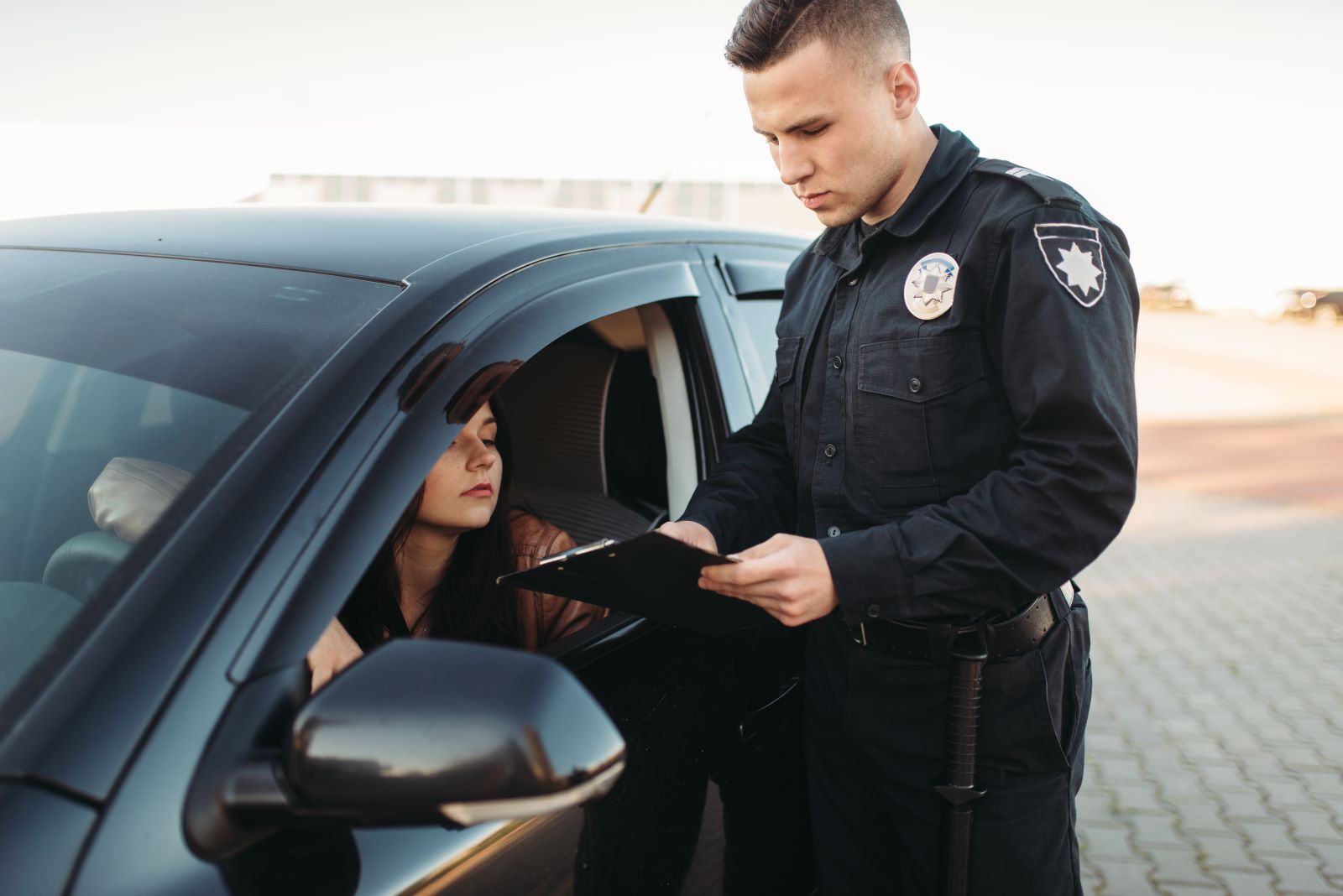
Image Credit: Shutterstock / Nomad
You are not legally required to answer any questions beyond providing your license, registration, and proof of insurance. If asked additional questions, you can politely exercise your right to remain silent. The American Civil Liberties Union (ACLU) advises saying, “I choose to remain silent” if you’re unsure about answering.
4. Record the Encounter (Where Legal)

Image Credit: Shutterstock / Redaktion93
In many states, it’s legal to record your interaction with law enforcement. Recording can protect you if the situation escalates, but it’s important to know your state’s laws regarding recording police officers. The American Bar Association notes that recorded encounters have helped in numerous legal cases when police conduct is questioned.
5. Avoid Consenting to a Search
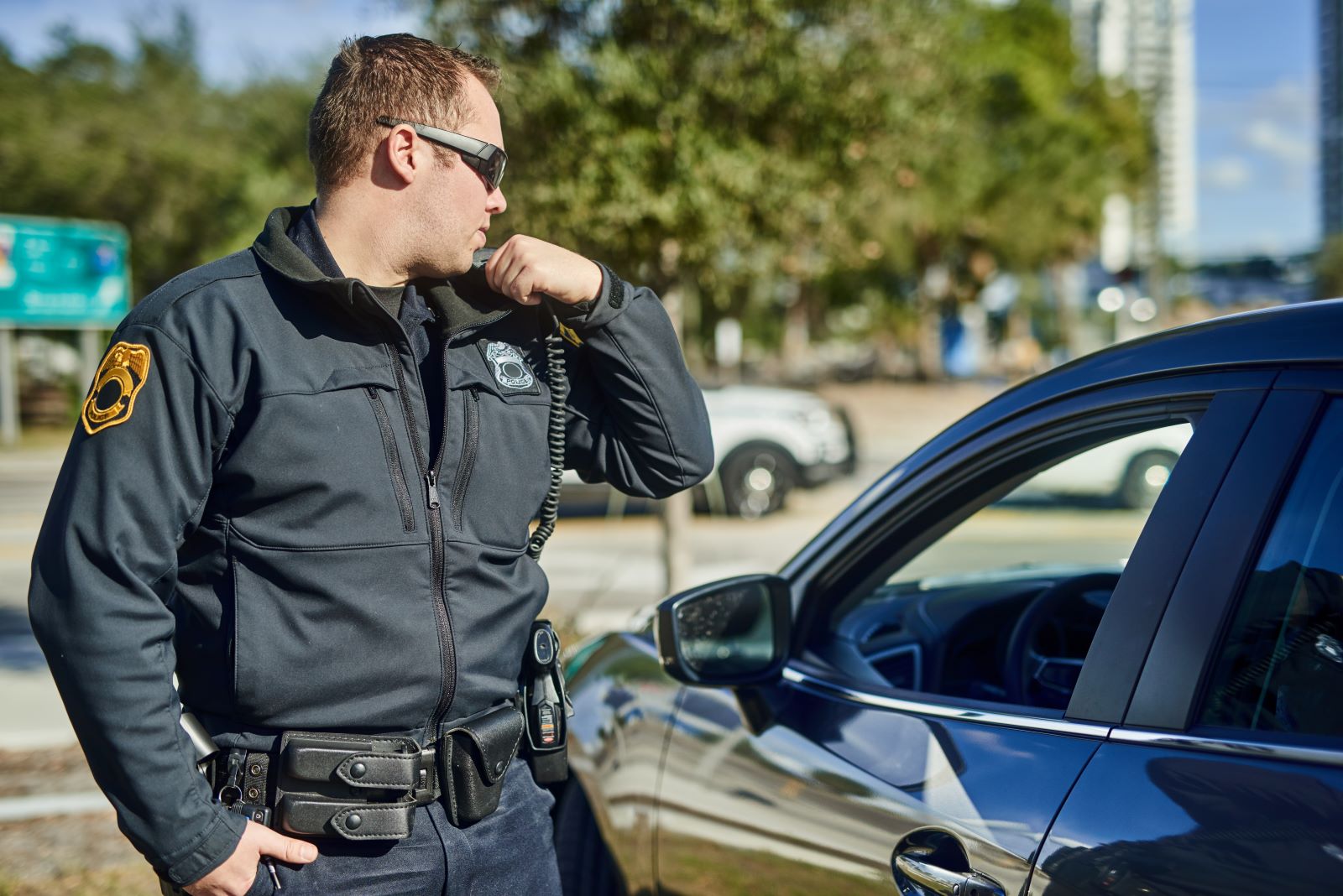
Image Credit: Shutterstock / PeopleImages.com – Yuri A
Unless the officer has a warrant or probable cause, you are not obligated to consent to a search of your vehicle. Consenting to a search can waive some of your Fourth Amendment rights. Data from the National Institute of Justice shows that most drivers who refuse searches are not subjected to further action, provided there is no probable cause.
6. Be Aware of the Officer’s Commands
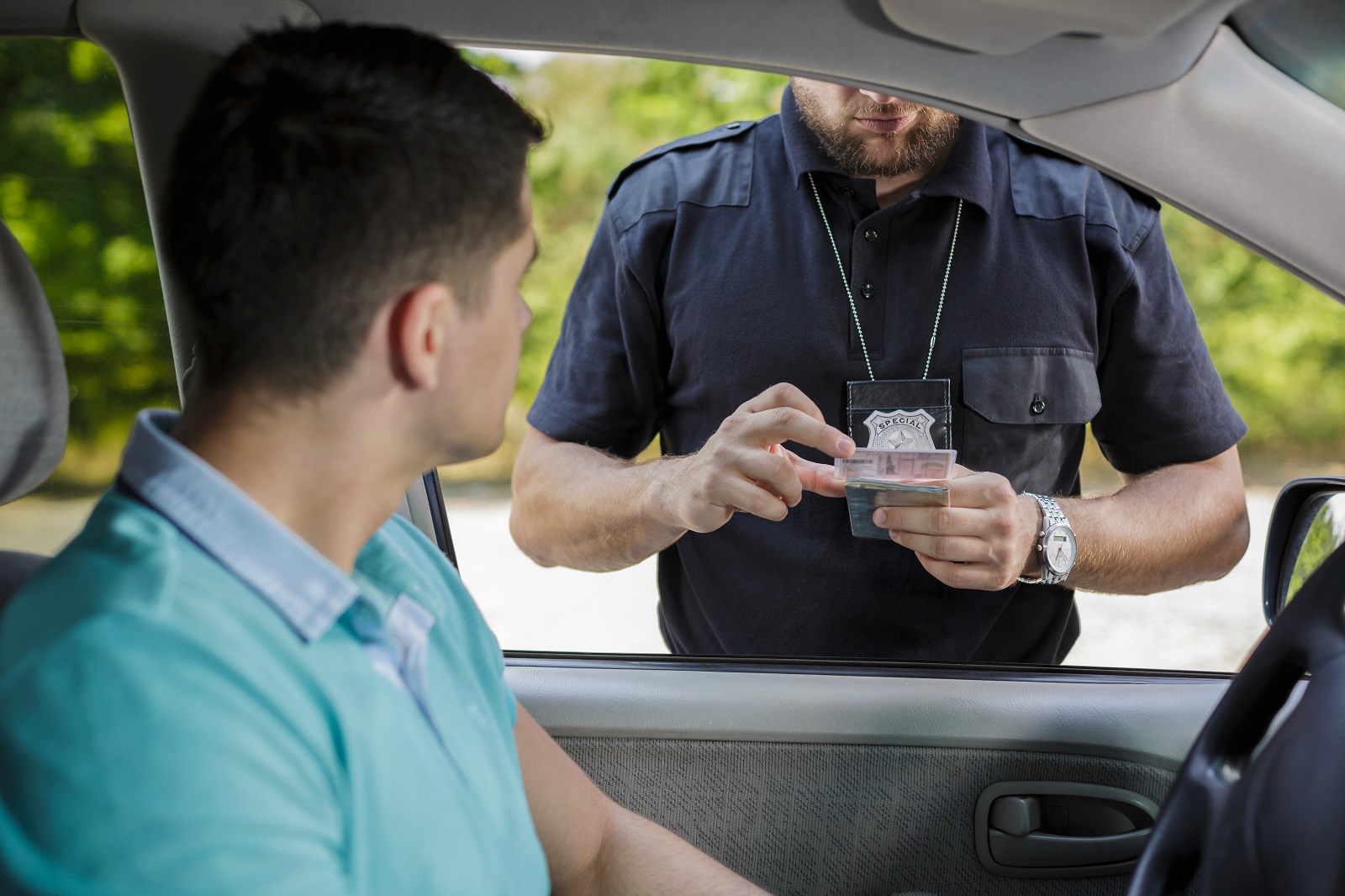
Image Credit: Shutterstock / Ground Picture
Listen carefully to the officer’s instructions and follow them precisely. This can help avoid misunderstandings that may escalate the situation. A study from the Bureau of Justice Statistics found that 85% of traffic stops proceed without incident when drivers comply with commands.
7. Ask If You Are Free to Leave
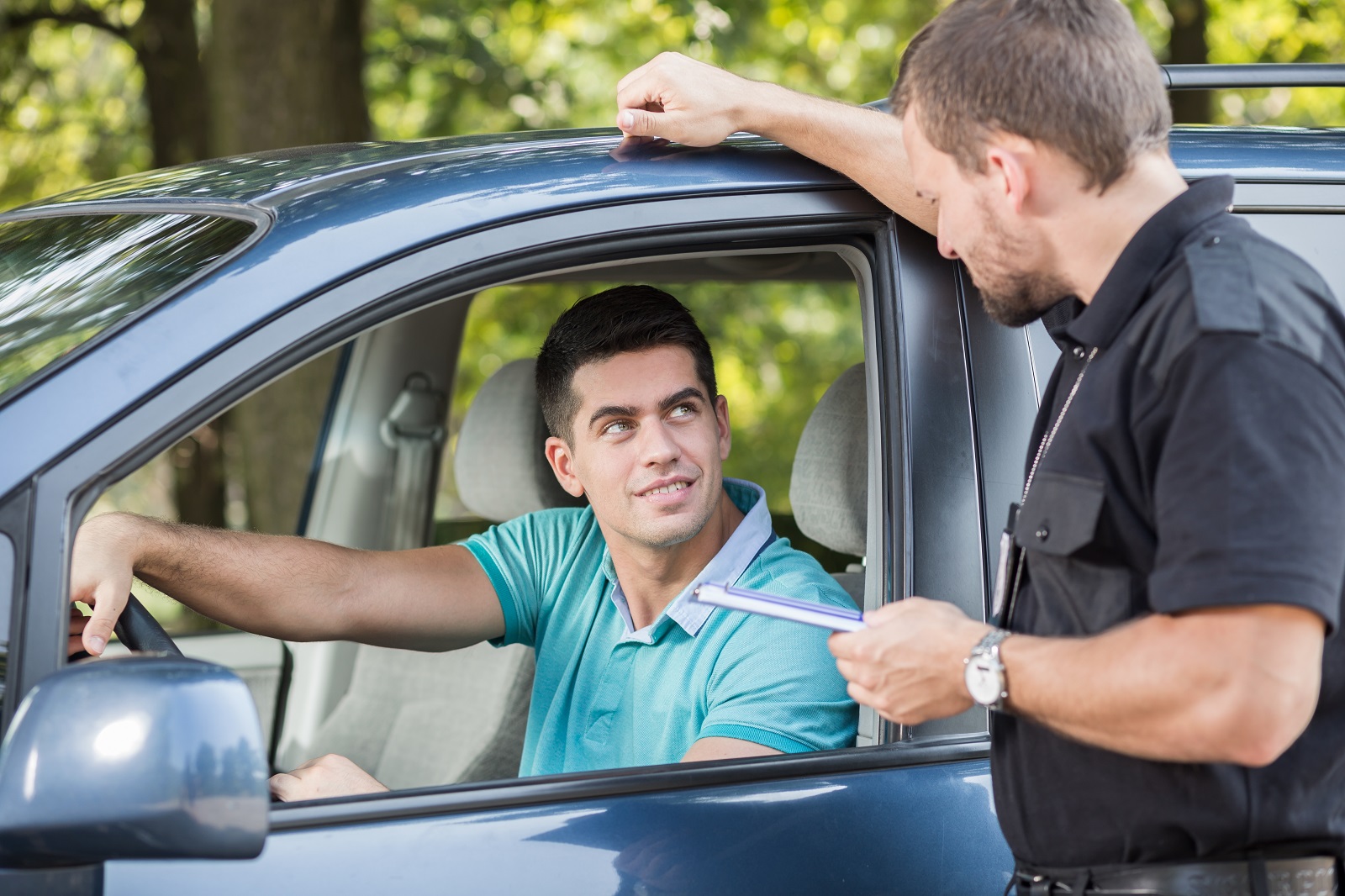
Image Credit: Shutterstock / Ground Picture
If you’re not being detained, you have the right to ask if you’re free to leave. If the officer does not intend to issue a citation or make an arrest, this question can prompt them to conclude the stop. The University of Chicago Law Review suggests that asserting this right can prevent unnecessary detention.
8. Do Not Admit Fault
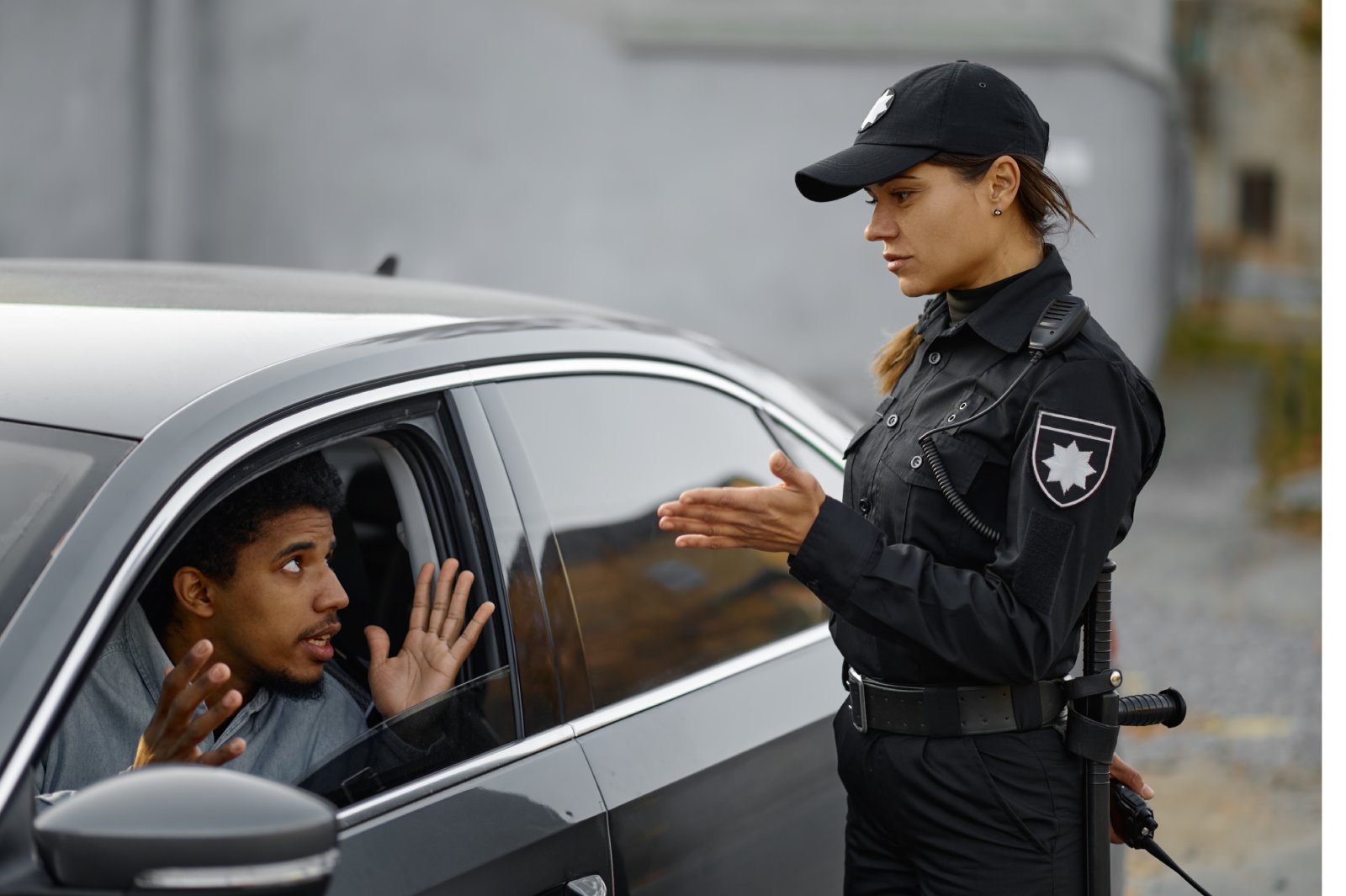
Image Credit: Shutterstock / Nomad_Soul
Even if you believe you were in the wrong, avoid admitting guilt at the scene. Any admission could be used against you later, especially in court or by insurance companies. The Insurance Information Institute warns that admissions at traffic stops can lead to increased liability and higher premiums.
9. Stay Inside the Car Unless Instructed Otherwise

Image Credit: Shutterstock / Ground Picture
Unless the officer asks you to step out, remain in your vehicle. Exiting the vehicle prematurely can be seen as a sign of aggression or an attempt to flee. The National Highway Traffic Safety Administration recommends keeping your seatbelt on and waiting for clear instructions from the officer.
10. Don’t Argue on the Spot
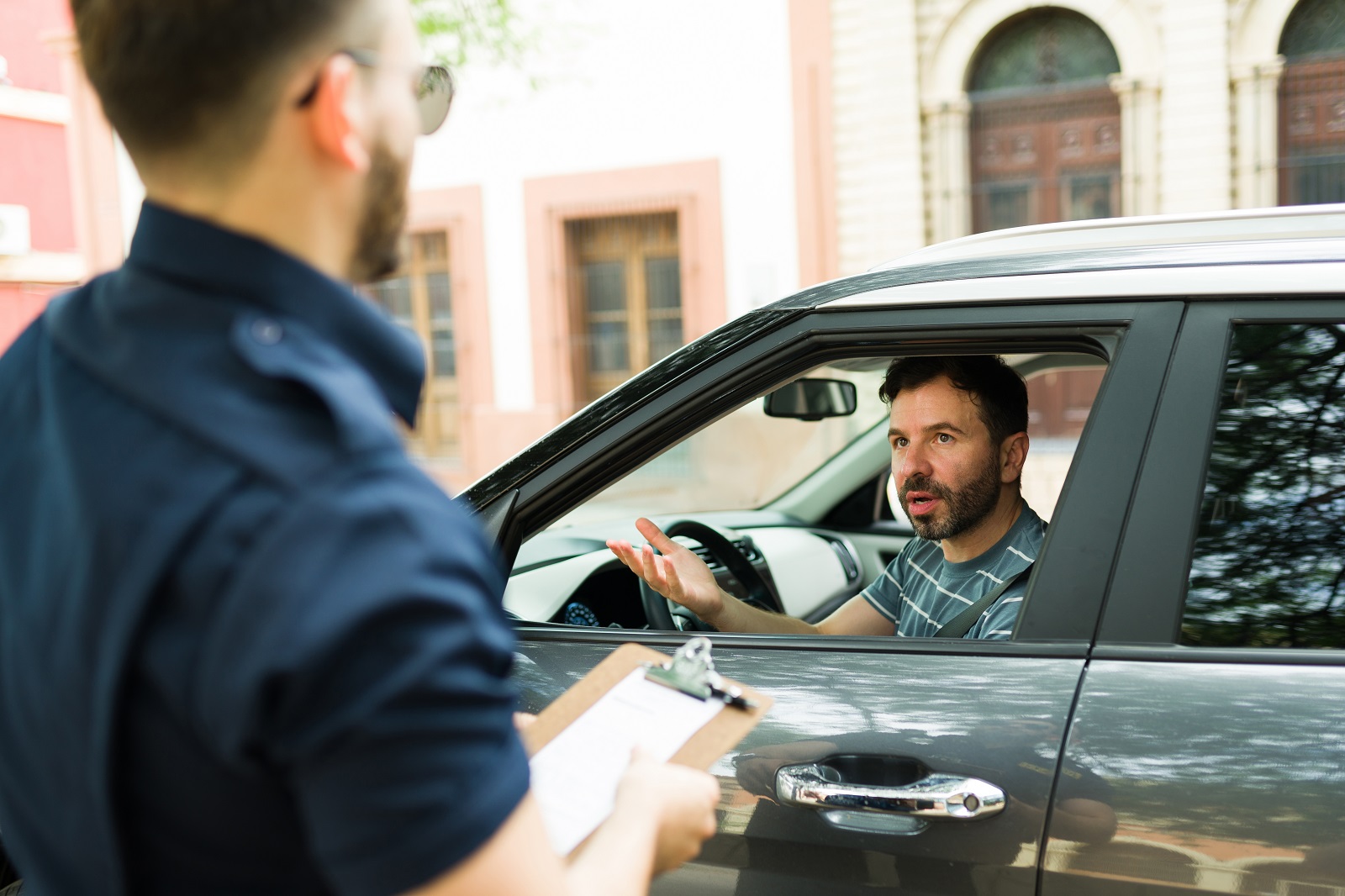
Image Credit: Shutterstock / antoniodiaz
A traffic stop is not the place to contest a ticket or argue with the officer. Save your arguments for court if you believe the stop was unjustified. The Stanford Open Policing Project found that confrontations during stops led to negative outcomes in over 40% of cases.
11. Document the Details of the Stop
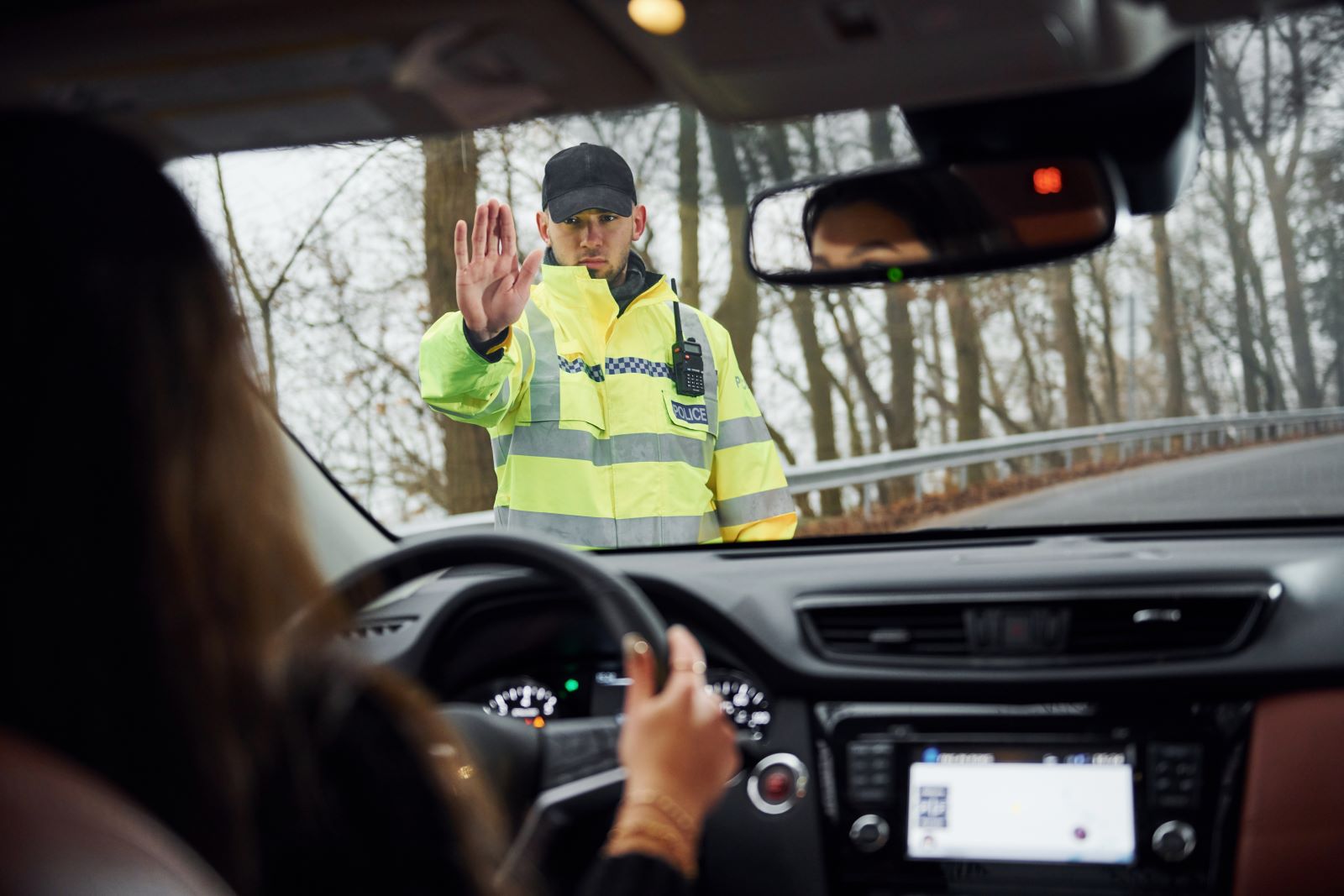
Image Credit: Shutterstock / Standret
If you feel the stop was unjust or mishandled, take mental notes of key details like the officer’s badge number, patrol car number, and the time and location of the stop. These details can be crucial if you choose to file a complaint or contest the ticket. The ACLU advises keeping a written record of your experience as soon as possible after the stop.
12. Remain Calm and Polite
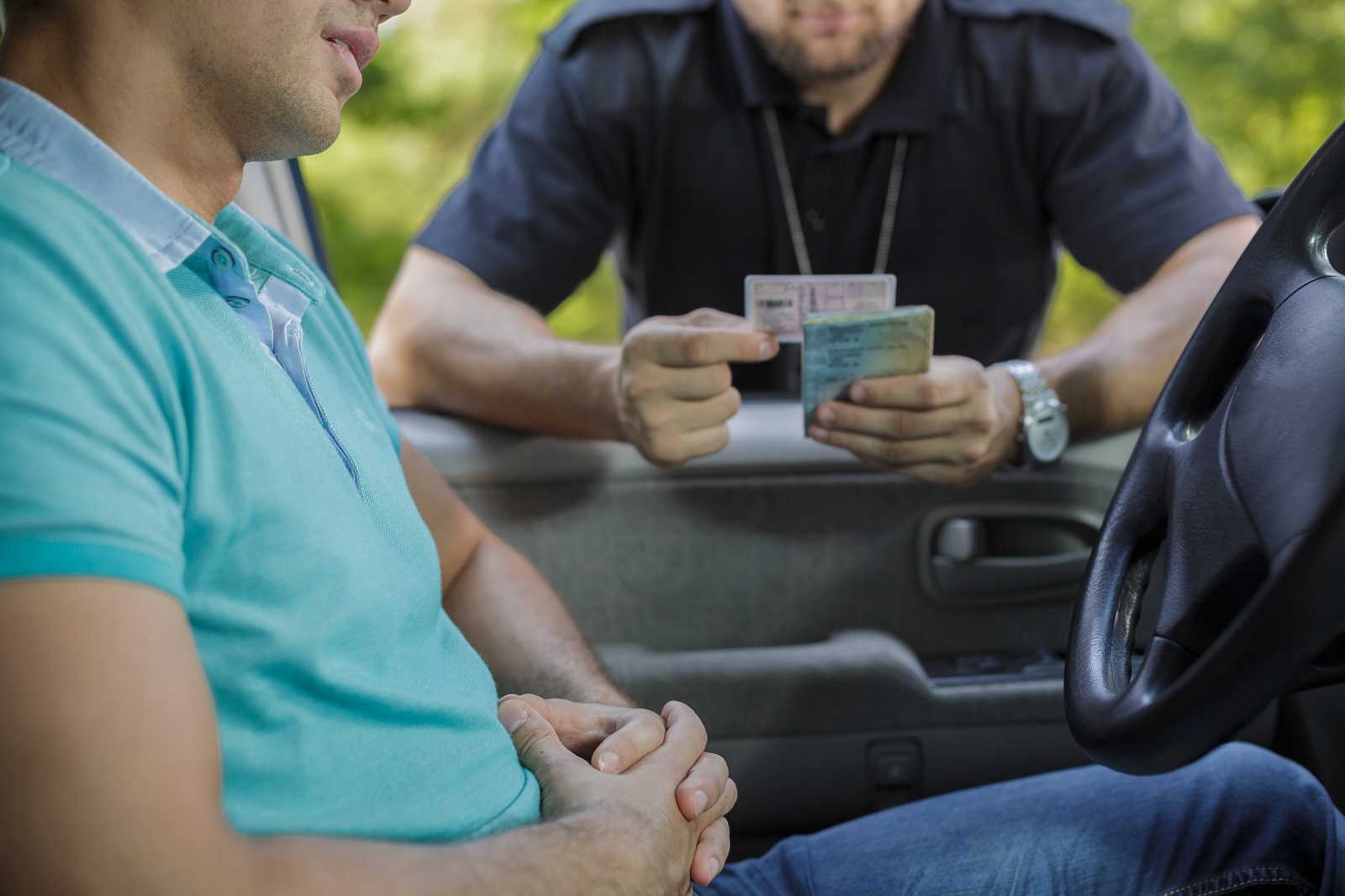
Image Credit: Shutterstock / Ground Picture
Keeping calm and being polite during the stop can make a significant difference in how the situation unfolds. Tensions can escalate quickly if you appear hostile or aggressive. According to the National Police Foundation, polite and cooperative behavior can de-escalate most traffic stops, reducing the likelihood of an arrest or further action.
13. Understand Your Right to Refuse a Breathalyzer
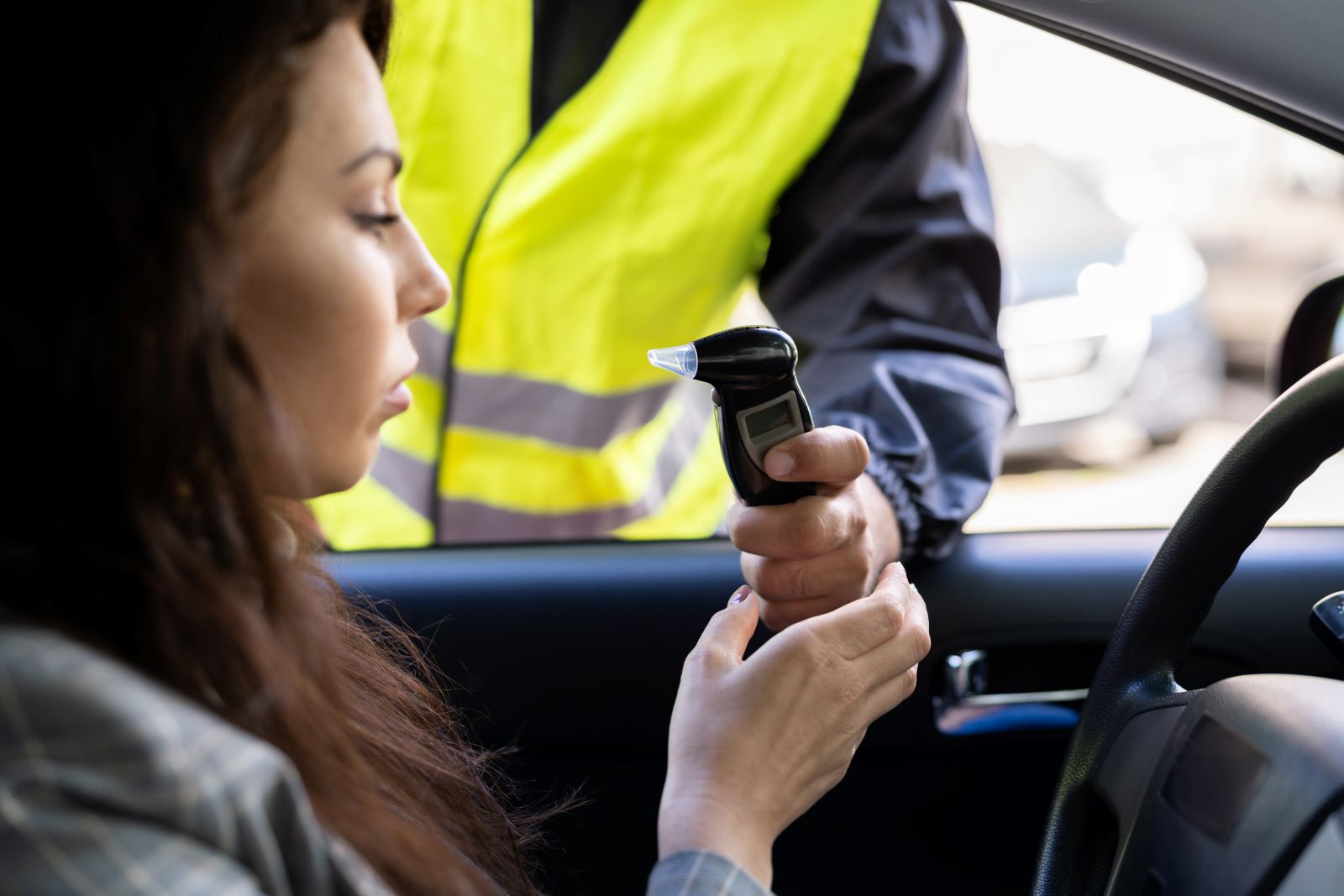
Image Credit: Shutterstock / Andrey_Popov
If you’re pulled over for suspected drunk driving, you may have the option to refuse a breathalyzer test, but this comes with consequences. In many states, refusing a test can result in immediate license suspension under implied consent laws. The Governors Highway Safety Association reports that nearly 25% of drivers refuse breathalyzer tests, often leading to harsher penalties.
14. Request a Lawyer if Arrested

Image Credit: Shutterstock / PanuShot
If you are arrested, immediately request a lawyer and stop answering questions. The Sixth Amendment gives you the right to legal representation, and anything you say without a lawyer present can be used against you. The National Association of Criminal Defense Lawyers recommends clearly stating, “I want to speak with a lawyer” to halt any questioning.
15. Avoid Sudden Movements
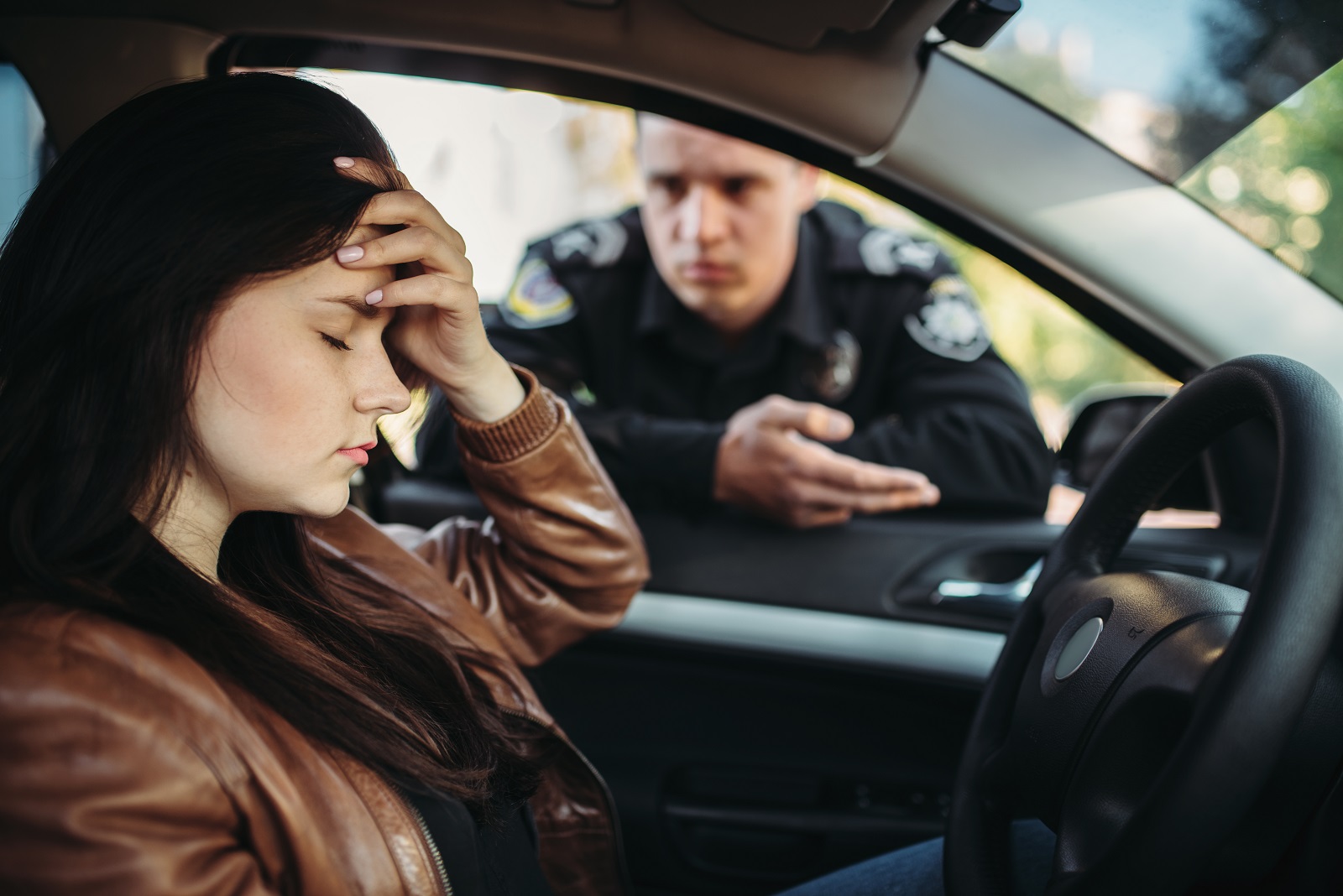
Image Credit: Shutterstock / Nomad_Soul
Avoid making any sudden or unexpected movements during the stop. Quick or unanticipated actions can make the officer feel threatened. The National Law Enforcement Officers Memorial Fund highlights that traffic stops can quickly escalate if an officer perceives a threat, making it essential to move slowly and deliberately when retrieving documents.
16. Know What Happens If You Refuse a Ticket
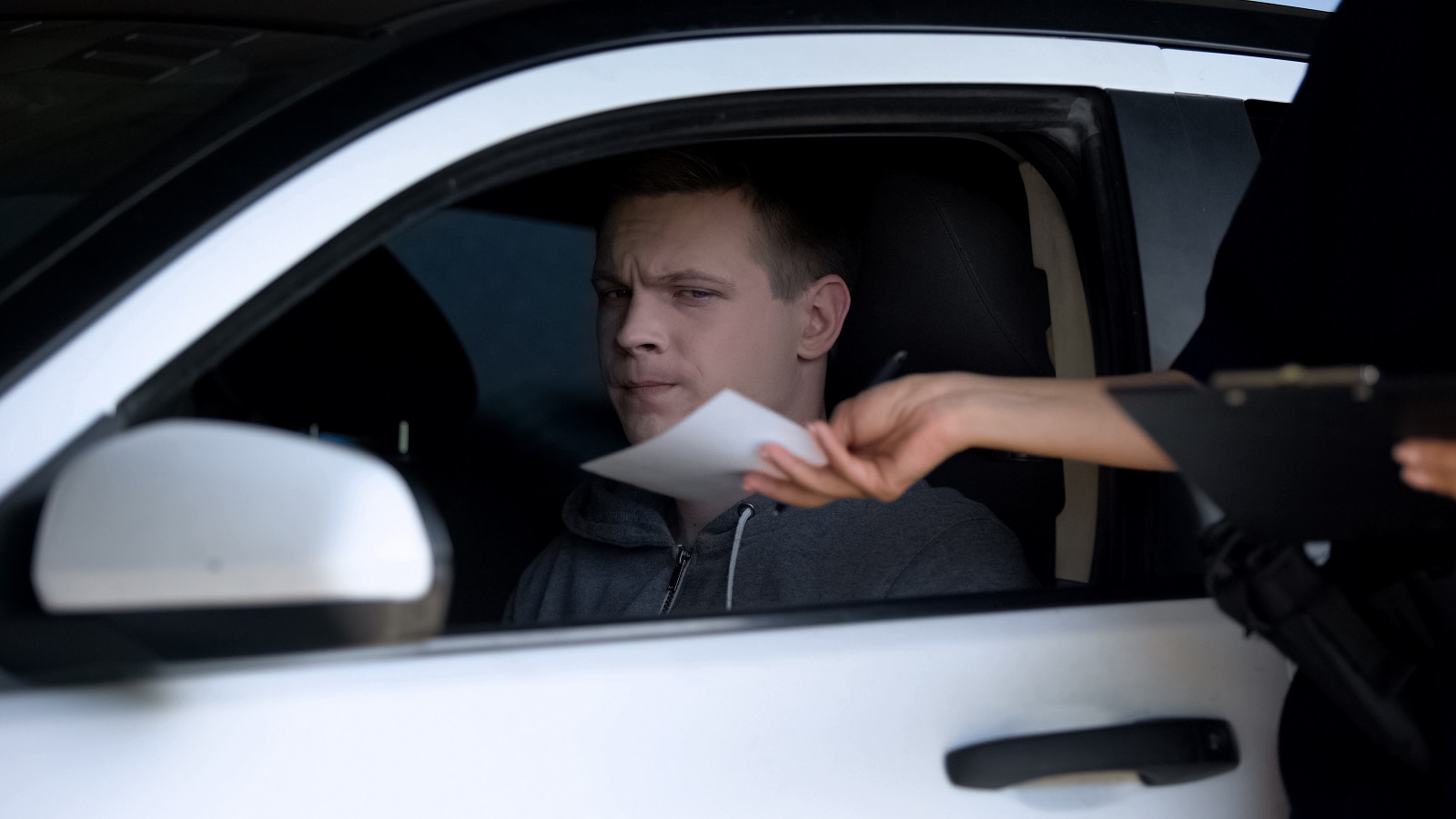
Image Credit: Shutterstock / Motortion Films
In most states, refusing to sign a traffic ticket can lead to arrest. Signing a ticket is not an admission of guilt but an acknowledgment that you received it. The U.S. Department of Transportation advises that refusal to sign can escalate the situation, resulting in additional charges.
17. File a Complaint if Necessary
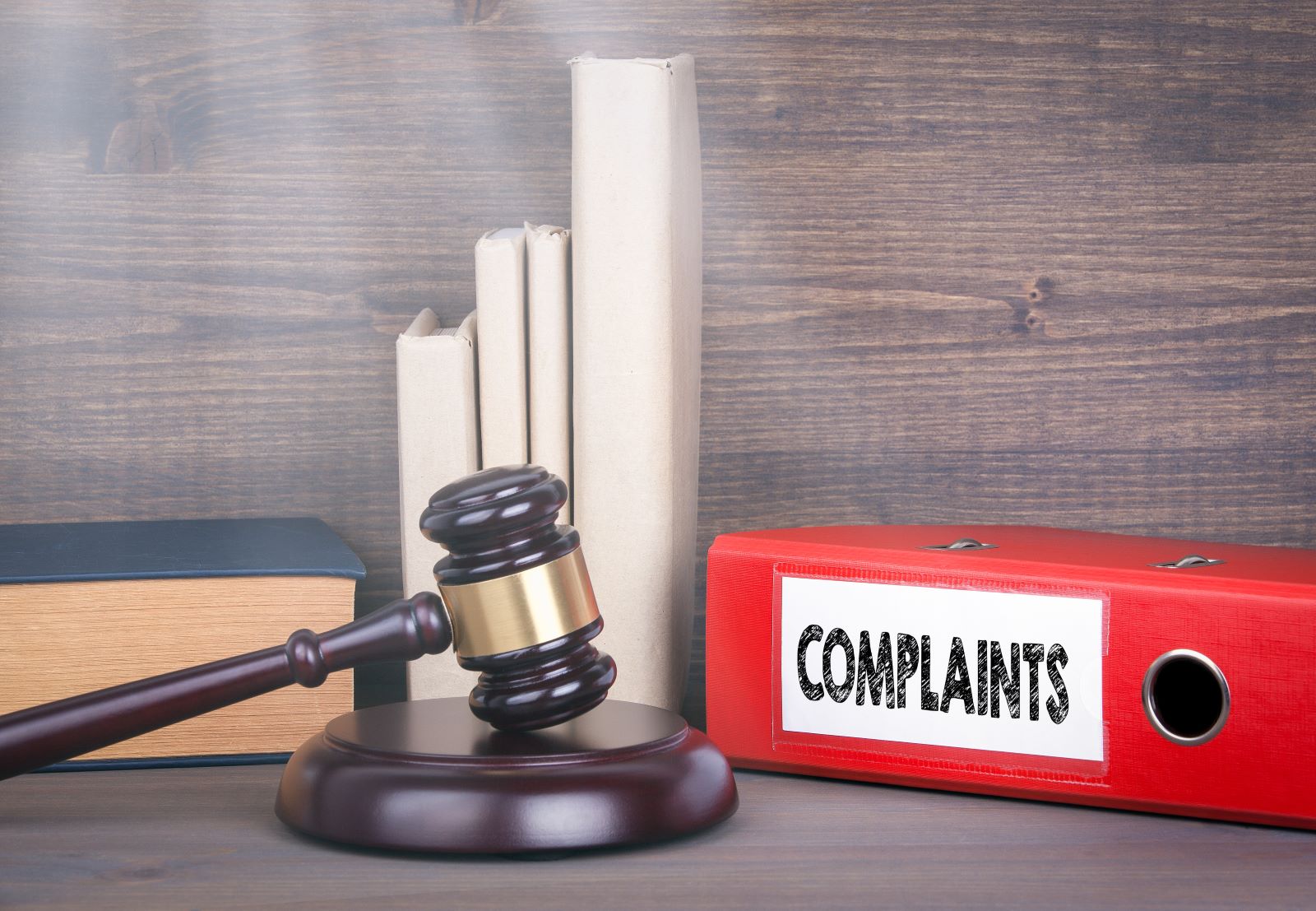
Image Credit: Shutterstock / stoatphoto
If you believe your rights were violated during a traffic stop, don’t hesitate to file a formal complaint with the police department’s internal affairs division. Documenting your experience and filing a complaint can help address potential misconduct. The National Police Accountability Project encourages people to report their encounters to improve law enforcement practices.
Keep Your Cool and Stay Protected
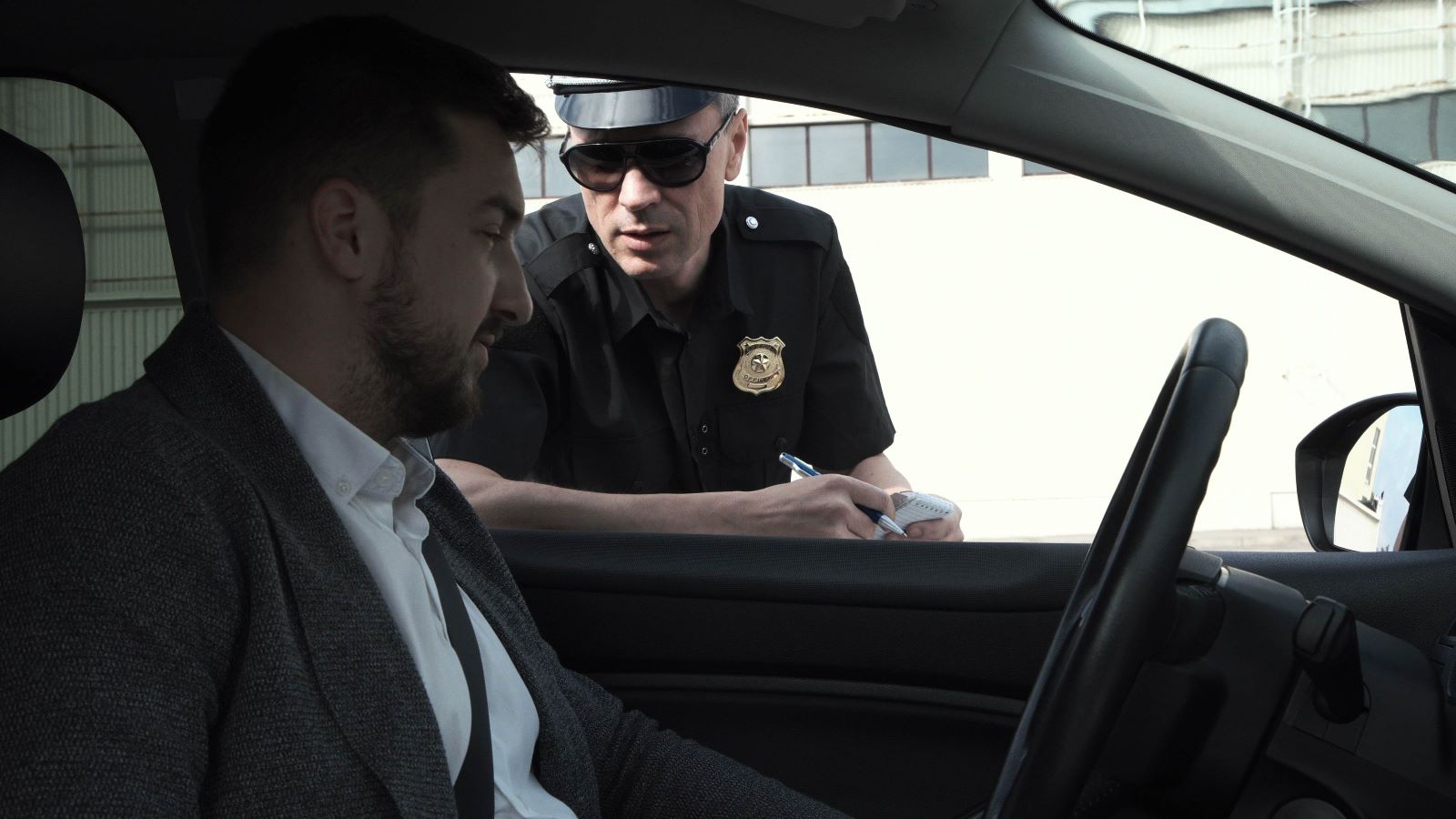
Image Credit: Shutterstock / Frame Stock Footage
Handling a traffic stop properly can help protect you both legally and physically. By knowing your rights and staying calm, you can navigate the situation safely while ensuring your legal protections remain intact.
Police Magnet: 7 Cars That Guarantee You’ll Get Pulled Over
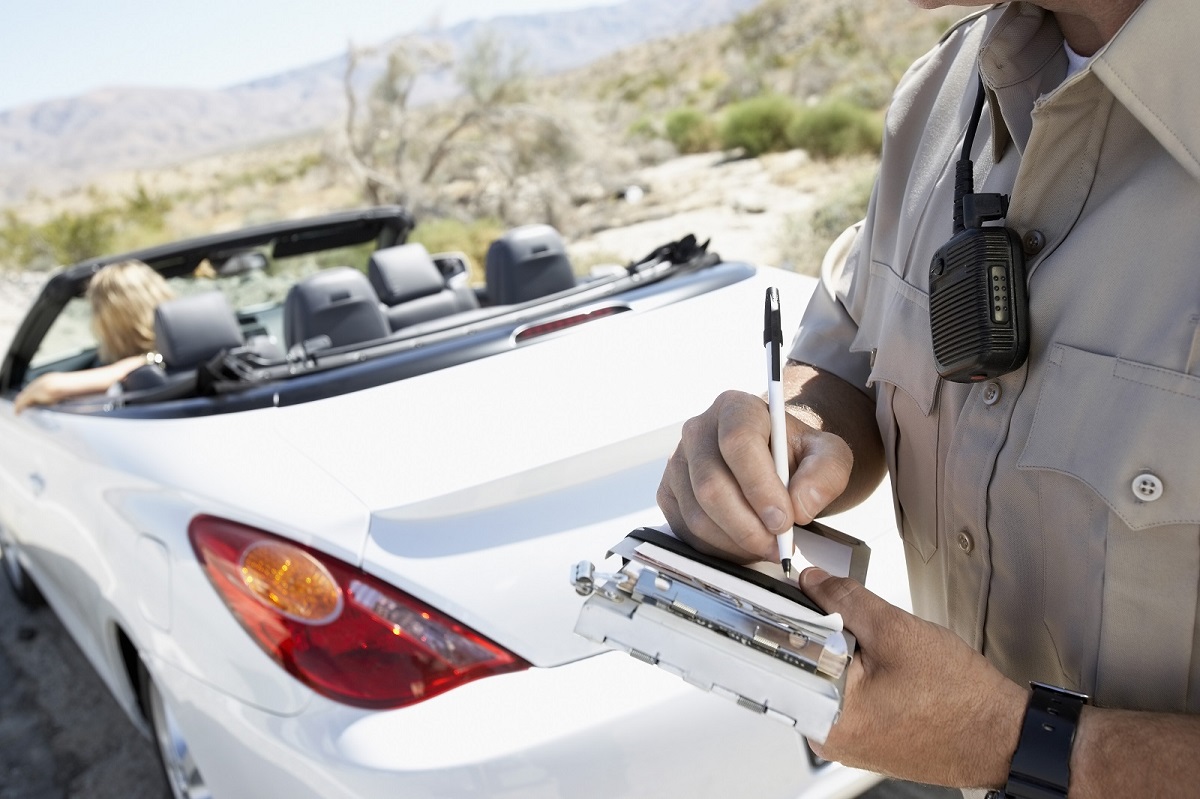
Image Credit: Shutterstock / sirtravelalot
Driving certain cars can make you more noticeable to law enforcement, even if you’re abiding by all the rules. Are you driving one of these “police magnets”? Here are seven cars that seem to attract more police attention than others. Police Magnet: 7 Cars That Guarantee You’ll Get Pulled Over
The Classic Cars That Were Total Clunkers
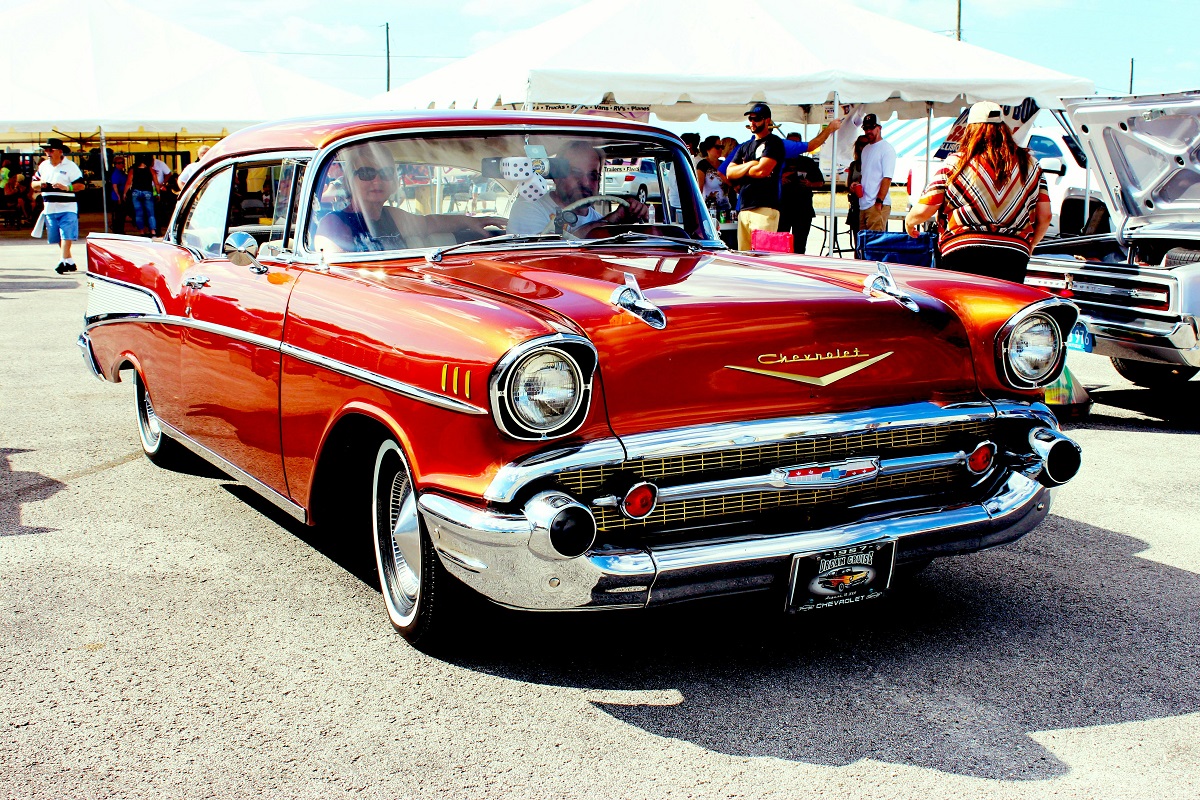
Image Credit: Pexels / Pixabay
Nostalgia has a funny way of making the past seem better than it was, especially when it comes to cars. But here’s the hard truth: some of those “classic” cars your dad raves about were real clunkers. Here’s a closer look at why some of those so-called “classics” weren’t all they were cracked up to be. The Classic Cars That Were Total Clunkers
The Worst U.S. Cars Ever Made: A Retro List
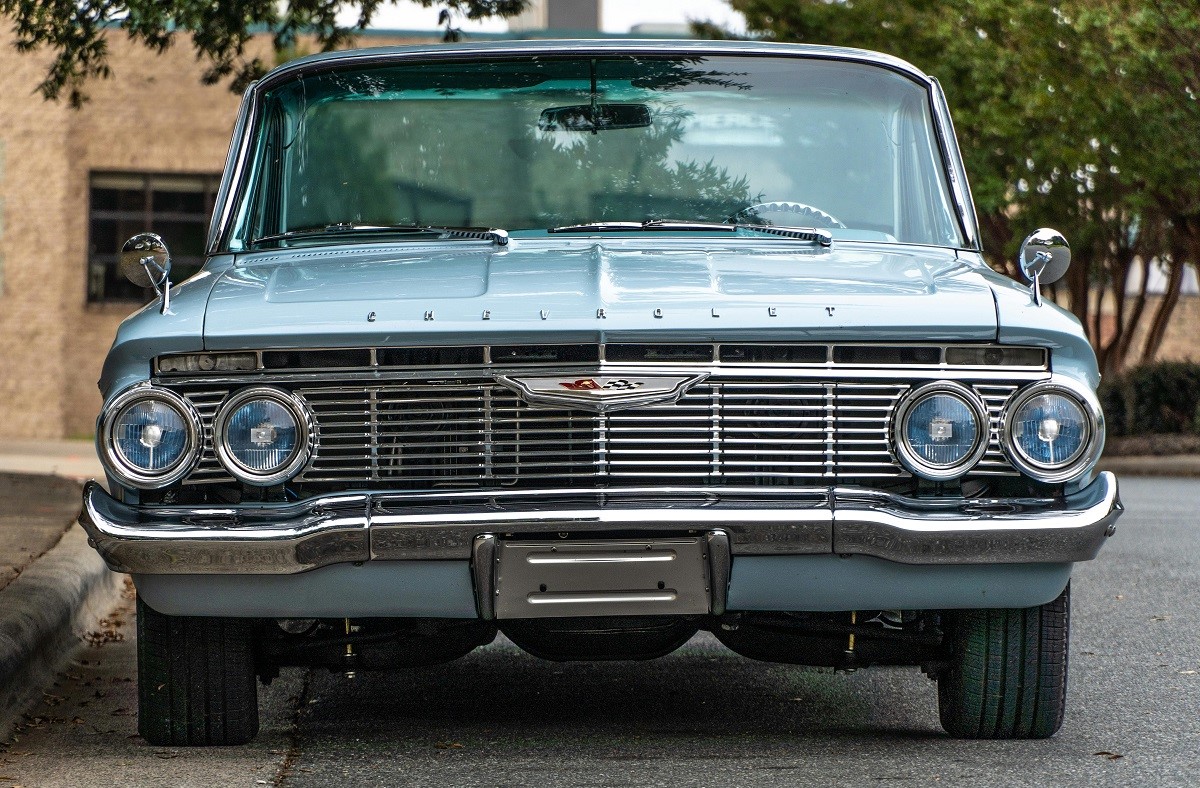
Image Credit: Pexels / Be The Observer
The U.S. auto industry has produced some incredible vehicles, but not every model was a hit. Here’s a look back at 16 of the worst cars ever made in the U.S., each infamous for its own unique flaws. The Worst U.S. Cars Ever Made: A Retro List
Featured Image Credit: Shutterstock / Michael O’Keene.
The content of this article is for informational purposes only and does not constitute or replace professional advice.
The images used are for illustrative purposes only and may not represent the actual people or places mentioned in the article.
For transparency, this content was partly developed with AI assistance and carefully curated by an experienced editor to be informative and ensure accuracy.
